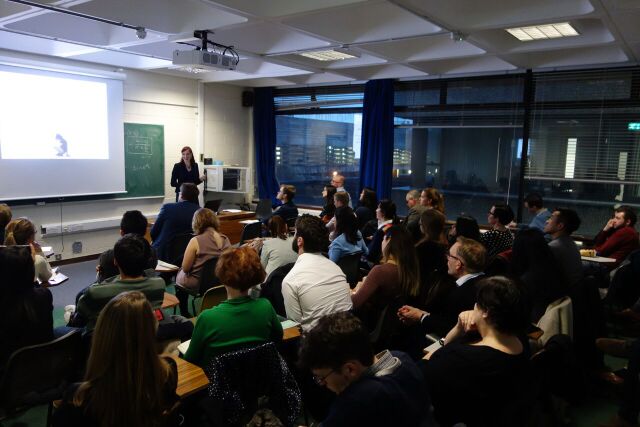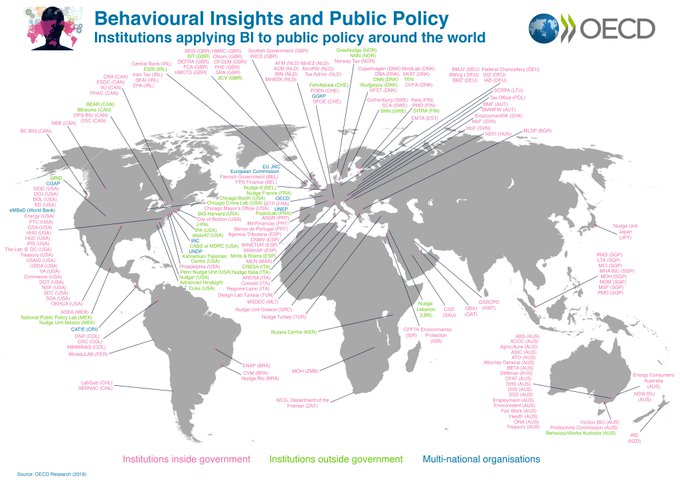
More recently, we have extended the events to a broad set of network meetings called the Irish Behavioural Science and Policy Network, organised by myself, Sean Gill, and Pete Lunn. Since 2016, we have organised several panel sessions examining a range of applications of behavioural science in policy with participants from Irish public policy agencies, as well as external speakers such as Cass Sunstein, Till Grune-Yanoff, and Dilip Soman. The webpage here includes a link to sign up for future sessions of this network, which will take place on a monthly basis from September.
The map below from Faisal Naru at the OECD gives a sense of the interest in this area in Ireland and globally. On the current version of the map, the Irish entries are the Central Bank, the ESRI, the SEAI, the Environmental Protection Agency, and the Irish Revenue Commissioners. The ongoing projects at these agencies have featured on several occasions in the annual conferences and network sessions of these events and over time there is a clear development of a community of practice in this area in Ireland. We hope the monthly sessions that will begin in September and take place on zoom, will help to continue to grow this area in Ireland and serve a number of functions including: discussing experiences from current and completed applications, developing networks of professional practice, discussing international developments, increasing awareness of methodological developments, developing ethical standards of application of behavioural science, developing new forms of collaboration between researchers and practitioners, and other functions that emerge through the discussions.

As well as these five agencies, there are several groups across the country with interest and capacity in the broad area of behavioural science and policy. Most recently, the Irish National Public Health Emergency Team (NPHET) assembled a group of researchers from across the universities and public agencies to form a behavioural change subgroup to examine behavioural issues around the covid response. This group drew from researchers in a number of public agencies, as well as the ESRI Behavioural Research Unit, academics from the UCD Behavioural Science and Policy group, the NUIG Behavioural Change group, and the UL Psychology Department. More generally, several government departments and agencies have developed projects in the broad area of behavioural science and policy, including the Department of Health, the Department of Agriculture, Food, and Marine, and the Competition, and Consumer Protection Commission (CCPC). I will use this post to add some key readings and talking points from the discussions as they emerge and welcome suggestions about topics and areas for development.
No comments:
Post a Comment